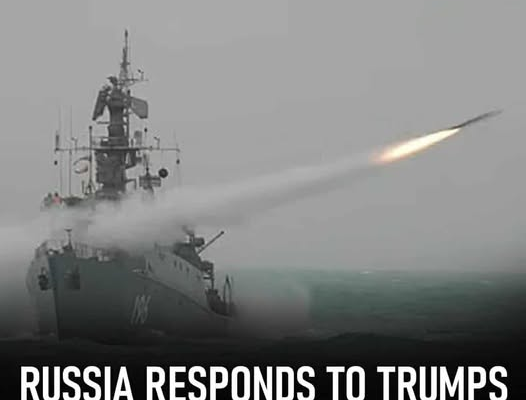
Amid rising geopolitical tensions, a bold exchange between the United States and Russia has sparked global attention. President Donald Trump recently announced the repositioning of two U.S. nuclear submarines near Russia, prompting a firm response from senior Russian lawmaker Viktor Vodolatsky.
In a statement to Russia’s state media TASS, Vodolatsky said, “There are significantly more of our [nuclear] submarines in the world’s oceans. Let [Trump’s] two boats float—they’ve been at gunpoint for a long time.”
Trump’s Escalation and the Nuclear Deterrence Strategy
Trump’s decision, posted via his Truth Social platform, follows heightened tensions over the ongoing war in Ukraine. The former president issued an ultimatum: if Russia does not agree to a ceasefire by August 8, 2025, new economic sanctions would be imposed.
In response, former Russian President Dmitry Medvedev warned that the U.S. was taking “a step towards war,” emphasizing the gravity of the situation.
Military Balance: Submarine Capabilities
Vodolatsky’s remarks referenced the extensive reach of the Russian Navy, claiming superiority in nuclear submarine numbers and weapon strength. According to Newsweek, the U.S. has not confirmed whether the repositioned submarines are nuclear-powered or nuclear-armed, but the announcement alone marks a significant diplomatic move.
What This Means for Global Security
Experts say this exchange reflects the broader uncertainty surrounding U.S.-Russia relations. With strategic nuclear assets now visibly on the move, international observers warn that such rhetoric—especially when tied to active conflict zones—carries profound consequences.
Meanwhile, joint Russian-Chinese naval drills in the Sea of Japan continue, further signaling a united front among U.S. adversaries.
Strategic Messaging or Tactical Shift?
Though no direct conflict is expected in the immediate term, the movement of nuclear submarines sends a potent message. The balance of power under the sea—where modern deterrence is often enforced—remains a silent but decisive force in global diplomacy.
For those following the developments in global defense policy and international law, this event is being closely tracked by policy institutes such as RAND Corporation and the Center for Strategic and International Studies.
Final Thoughts
As President Trump and the Russian Federation exchange high-stakes moves, the world watches for signs of resolution—or further escalation. What’s clear is that nuclear diplomacy remains as relevant today as it was during the Cold War.“`



